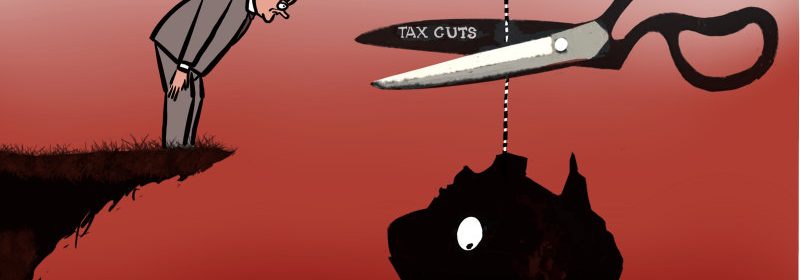What we weren’t told before the election: taxes to rise, not fall

The rule for Treasury bosses is that, as public servants, any frank and fearless advice they have about the state of the federal budget must be given only to their political masters, and only in private.
But last week the present secretary to the Treasury, Dr Steven Kennedy, used a speech to economists to deliver a particularly frank assessment of the Labor government’s budgetary inheritance.
Treasury secretary Steven Kennedy has provided an assessment of Labor government’s budgetary inheritance.Credit:Alex Ellinghausen
We can be sure his remarks came as no surprise to his boss, Dr Jim Chalmers, who would have been happy to have his help to disabuse us of any delusions lingering from an election campaign which, as always, was fought in a confected fantasy-land of increased spending on bigger and better government services and lower taxes.
Surprise, surprise, the post-election truth is very different. The budget released just before the campaign began foresaw a budget deficit of a huge $80 billion in the financial year just ending, with only a trivial decline in the coming year and continuing deficits for at least another decade.
Neither side admitted to any problem with this prospect during the campaign, but Kennedy’s first bit of frankness about such a leisurely approach was to observe that “a more prudent course” would be for the budget deficit to be eliminated and turned to a surplus. (By the standards of bureaucratic reticence, this was like saying, “You guys have got to be joking”.)
Eliminating the deficit would mean adding no more to our trillion-dollar debt. Running budget surpluses would actually reduce the debt, thus leaving us less exposed should there be a threatening turn in the economy’s fortunes.
The two obvious ways of improving the budget balance are to cut government spending or to increase taxes. Some people love making speeches about the need to absolutely slash government spending, but they usually mean spending that benefits other people, not themselves.
The sad truth is that “waste and extravagance” is in the eye of the beholder. There’s always some powerful interest group on the receiving end of government spending – medical specialists, say, or the nation’s chemists – and they don’t take kindly to any attempt to slash their incomes.
The last time a serious attempt was made to cut government spending – by Tony Abbott in his first budget, in 2014 – the public outcry was so great that the Coalition beat a hasty retreat, and never tried it again.
Instead, it limited its parsimony to quietly restraining money going to the politically weak – the jobless, the public service, overseas aid – but this didn’t make a huge difference to the more than $600 billion the government spends each year.
IllustrationCredit:Andrew Dyson
Kennedy’s next frank observation was that, even excluding the many billions in spending related to temporarily supporting the economy during the lockdowns, government spending as a proportion of the nation’s income is expected to average 26.4 per cent over the coming decade, compared with 24.8 per cent in the decades before the pandemic.
In other words, government spending is likely to grow much faster than the economy grows, to the tune of about $36 billion a year in today’s dollars.
The new government is undertaking a line-by-line audit of all the Coalition’s “rorts, waste and mismanagement”. But, to be realistic, it’s unlikely to find much more in savings than it needs to cover its own new spending promises.
Kennedy said that most of this additional spending is driven by money going to the National Disability Insurance Scheme (by far the biggest), aged care, defence, health and infrastructure. “Further pressures exist in all these areas,” he said.
The simple, obvious truth is that if we want more services without loss of quality, we’ll have to pay higher taxes.
To that you can add underfunding by the Coalition in tertiary education and healthcare, plus a massive capability gap over the next 20 years or more which can only be fixed by an immediate increase in spending on defence, diplomacy and foreign aid.
Which leaves us with taxes. Higher taxes. Scott Morrison’s promise to guarantee the delivery of essential services while reducing taxes was delusional – a delusion many of us were happy to swallow.
The simple, obvious truth is that if we want more services without loss of quality, we’ll have to pay higher taxes.
Kennedy warned that the expected (but, in his view, inadequate) improvement in the budget balance over the coming decade will rely largely on higher income tax collections. “Inflation and real wages growth will result in higher average personal tax rates.”
This is a Treasury secretary’s way of saying “the plan is to let bracket creep rip”. And unless other taxes are increased, there’s “little prospect” of giving wage earners any relief via tax cuts.
“This would see average personal tax rates increase towards record levels,” he said, meaning more of the total tax burden would fall on wage earners.
The election saw both sides promising not to introduce new taxes or increase the rates of existing taxes (apart from, in Labor’s case, promising to extract more tax from multinationals).
But neither side made any promise not to let inflation push people into higher tax brackets. One way or another, we’ll be paying higher taxes.
Cut through the noise of federal politics with news, views and expert analysis from Jacqueline Maley. Subscribers can sign up to our weekly Inside Politics newsletter here.
Most Viewed in Business
From our partners
Source: Read Full Article


